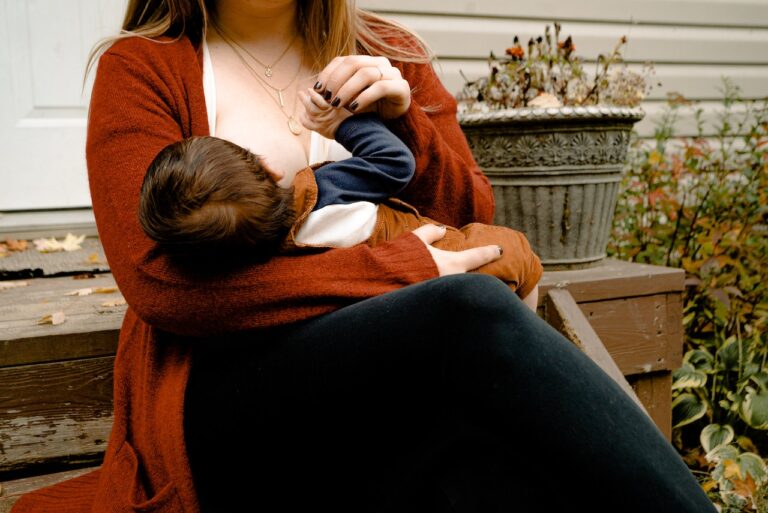Why is My Baby so Squirmy While Nursing: What Should I Do?
Many moms have a pitch-perfect image of how breastfeeding is. But nursing requires many of practice and patience, especially for beginners.
Babies have a natural instinct to search for food and protection from their mothers. However, infants still need guidance. Breastfeeding is a dance made for two and requires the effort of both mom and kid.
Babies squirm while nursing every now and then. A few little nudges and whimpers are normal. However, what can you do when squirming and thrashing turn into the norm?
Why is My Baby so Squirmy While Nursing?
Babies do not have the speaking capacity to tell people what they are feeling. So squirming is one of the many ways they show their discomfort.
There are tons of potential reasons why your baby is squirmy while nursing. Some issues can be solved with a quick change in your breastfeeding technique. Others require more observation and even a visit to the pediatrician.
Your Let-down Speed is Either too Slow or Fast
Your breast will start pushing out breast milk once you start your breastfeeding journey. Some moms can feel, predict, and even control their let-down reflexes, while others do not feel it coming at all.
Some moms have let-down reflexes that are either too slow or too fast. A slow let-down reflex means your baby is not receiving enough (or any) milk. Meanwhile, a fast let-down reflex means your baby has difficulty swallowing and might even gag.
If you have problems with a slow let-down, try focusing on your baby and removing distractions around your area. A good massage and warm compress might also do the trick. For a fast let-down reflex, find a position that slows down your breast from pushing out more milk.
Your Baby Does Not Have a Correct Latch
Your baby’s latch is crucial for a successful nursing session. A good latch should be pain-free and comfortable. Your baby should also get enough milk if they are latched correctly.
Your baby might be squirming because it cannot get milk in the first place. While your let-down reflex might make it impossible for junior to feed, your baby may also not have the right latch to attach themselves to you.
Your baby should be touching you while breastfeeding. You should also hear gulping and swallowing. It is a sign that your baby is getting fed.
Your Baby is Experiencing Reflux
Infants are more likely to regurgitate food. Babies rely on a liquid diet during their first few months alive and lie in their cribs almost daily. Eventually, incidents of reflux will reduce as your baby grows older.
But while reflux is normal, it is still an uncomfortable experience for your kid. Your baby might squirm when they feel food coming back up their throat. Talk about having too short of an esophagus!
Your Baby is Feeling Gassy
Nobody likes to feel gassy, especially babies. Excess gas can enter your baby’s mouth while breastfeeding and upset their digestive tract.
It is best to ease their bellyache before continuing breastfeeding. Help them get that gas out by burping them. A bloated tummy can make it hard for a baby to concentrate.
Something is Distracting Your Baby
Speaking of concentration: Your baby might have noticed something while breastfeeding. Maybe they saw something outside the window. Or perhaps they want their favorite toy while nursing.
Distractions can make your baby feel hyper and unable to focus on breastfeeding. They might squirm to get your attention or look at the thing that they find interesting.
Your Baby Is Full
Having lots of food is fantastic! But too much can make you feel sick and annoyed. And babies feel the same way. Your baby might start thrashing and squirming if they feel too full.
Babies might also show other signs of being full, such as pushing away the breast or turning their head away. It is best not to try and force them to have more since it can make them sick and bloated.
Your Baby Might Be Sick
Finally, your child might be ill, so they cannot concentrate on feeding. No one likes the feeling of being sick. Your baby might squirm to show they are not feeling good and need medical attention.
How Do I Stop My Baby from Squirming While Breastfeeding?
It is not hard to spot a squirming baby while breastfeeding. Pay close attention to how your baby acts and what triggers their fussiness. Has your baby been feeling down lately? Or have they been too busy with something on the TV?
Work on your latch if that is something you have an issue with. An incorrect latch can cause injuries to your breast and nipples. Not to mention, a poor latch means your kid is not getting all the nutrients they need.
Check on your child if they are feeling sick while nursing. While reflux is common for young babies, it might also be a symptom of GERD.
The occasional squirming here and there is not something you should worry about. Simply pay attention to what your baby needs and observe what triggers the behavior in them.
FAQ:
Should I stop breastfeeding my baby if they start squirming?
Squirming is a sign of upset and discomfort, so it is best to immediately stop breastfeeding. Observe your baby’s behavior and see what triggers their squirming.
How will I know if my baby’s latch is incorrect?
Your latch should feel comfortable and not painful. Skin-on-skin contact is a must. And finally, you should also observe your baby’s swallowing while being nursed.
Conclusion
Breastfeeding can be a chore, especially for inexperienced moms. You might run into issues like a poor latch, misshapen nipples, and fussy kids. Some babies immediately start squirming while nursing, and moms do not know what to do.
Maybe they cannot get ample amounts of milk from your nursing session, or perhaps they feel under the weather and need tender love and care. Watch out for those behaviors carefully, and you might find the answers right in front of you.
Nursing is a task that can only be successful with cooperation from both mom and child. By reading your kid’s cues while nursing, you will have no problem achieving that pitch-perfect image of breastfeeding.









